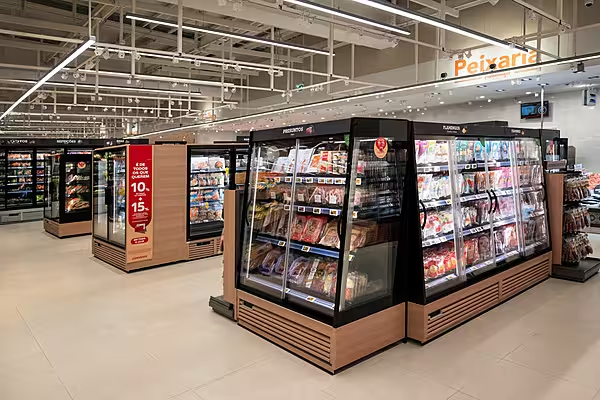Consumers might delight in the ease of front-door delivery for a mattress, trampoline or gym equipment. FedEx Corp., now handling an increasing number of these bulky shipments, has mixed feelings.
As more online shoppers snap up the type of hefty items once brought home in a pickup truck or on a car roof, FedEx is savoring the volume while facing a logistical headache: Some of these packages don’t always flow as smoothly through a company originally built to move small parcels and overnight envelopes.
The bigger boxes may not fit through automated sorters or be easily read by high-tech package scanners. Oddly shaped containers take up more space on trucks, disrupting efficient packing. Costs can rise, too, with more human handling and greater fuel use because of heavier cargo. Outsized pieces helped drive a 36 per cent surge in FedEx Ground’s operating expenses last quarter.
“It’s really a demonstration that e-commerce is growing and that drives demand for our business,” said Patrick Fitzgerald, FedEx’s senior vice president for marketing and communications. “We just need to be in close collaboration with customers so we’re ready for the types of packages we have there.”
New Normal
FedEx and United Parcel Service Inc., the world’s biggest package-delivery company, will have to get used to customers’ shipping expectations, according to Sucharita Mulpuru, a retail analyst with Forrester Research Inc.
E-commerce purchases of furniture are projected to grow at a compound annual rate of about 15 per cent from 2014 to 2019, with an 11 percent rate for car parts, according to Forrester. That compares with a 10 per cent rate for all e-commerce.
“These are all big categories that are absolutely outpacing the market,” Mulpuru said. “People are increasingly more comfortable with more categories of e-commerce now, and they are happy to purchase almost anything online.”
Not all bulky items make the cut for FedEx Ground service, which offers online tracking, faster delivery and doesn’t require the receiver to be home when the package is dropped off.
For shipments of more than 150 pounds (68 kg), measuring more than 108 inches (2.7m) in length or more than 165 inches in length and girth combined, FedEx and UPS have so-called less-than-truckload freight divisions that pack goods from multiple customers on each trailer.
Casper Sleep Inc. sells six sizes of mattresses online that are packed into boxes measuring 20 inches by 21 inches by 41 inches and that were crafted to ship through UPS’s small parcel network, said Neil Parikh, chief operations officer. The queen mattress, Casper’s most popular size, and box together weigh about 80 pounds.
“The benefit over freight is that it allows Casper to navigate within an existing network, as opposed to scheduling freight pickups and deliveries,” he said. “The small parcel network also allows Casper to ship anywhere in the U.S. and Canada significantly more affordably than freight.”
Queen Mattress
Mattress Firm Holding Corp. will use a 20-inch by 20-inch by 34-inch box when it begins selling its Dream Bed mattress exclusively online on Oct. 1, shipping through FedEx. A queen mattress and box weighs about 90 pounds. Using FedEx’s parcel system instead of freight “will allow us to ship a mattress to anyone in the continental U.S. in two business days or less,” said Dan Dietz, Mattress Firm’s vice president of digital.
Consumers are about to pay more for the privilege of getting large online purchases sent home. FedEx’s surcharge for parcels it considers over-sized will rise 17 per cent to $67.50 on Jan. 4. UPS’s rate is $57.50, the same as FedEx’s current fee. FedEx also is increasing its base package shipping rates by an average 4.9 per cent.
UPS is adding a new surcharge this year for retailers who ship a large number of oversize packages during the peak holiday season leading up to Christmas, said Steve Gaut, vice president of public relations and communications. Spokeswoman Susan Rosenberg said big-parcel volumes were up, but that “e-commerce in aggregate has more likely shifted to smaller and lighter- weight packages.”
Forty-four per cent of consumers in a recent survey agreed that the bigger the purchase, the less likely they were to buy it online, said Forrester’s Mulpuru. More surprising, however, is that another 23 per cent completely disagreed with that statement.
“There is a huge group of people who will buy anything online, regardless of its bulkiness,” Mulpuru said. She recently proved that thesis herself, purchasing a bathtub over the Internet. It was delivered by freight.
News by Bloomberg, edited by ESM. To subscribe to ESM: The European Supermarket Magazine, click here.














